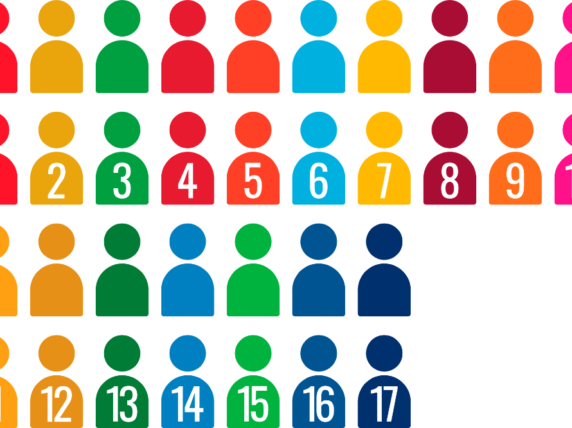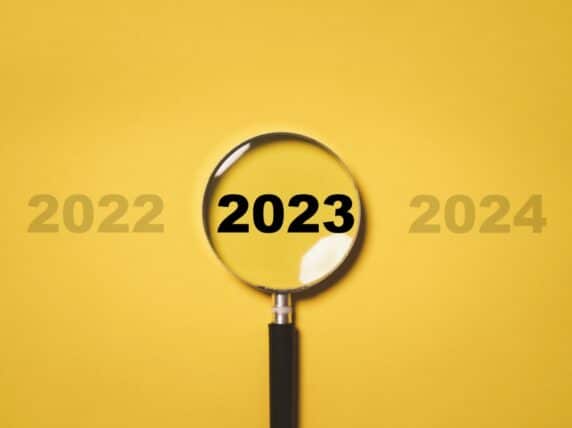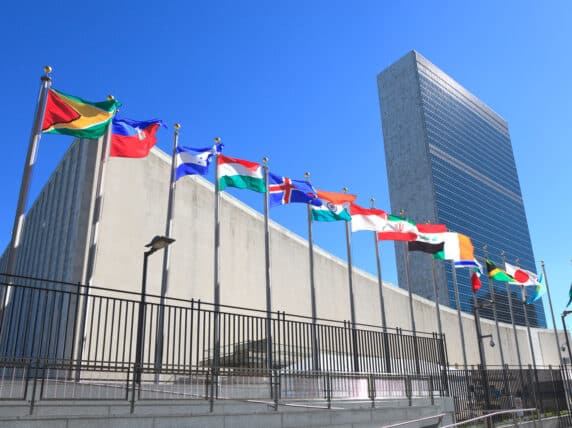The UK must step up and play its part on the world stage, using the SDGs to respond to global challenges
Our world today is dealing with intersecting crises of monumental proportions.
But against the backdrop of Covid-19 and the growing threats of climate change and conflict, which have knocked back hard-earned progress on the Sustainable Development Goals (SDGs), the UK’s lack of commitment to the SDGs is concerning.
Last week, when the world came together for the annual UN High-level Political Forum (HLPF) for Sustainable Development to review international efforts to achieve the SDGs, we saw from the countries reporting on their progress what is possible when governments put the SDGs at the centre of all that they do.
However, progress here in the UK has been disappointing. The UK government last reported to the HLPF in 2019 and, while it played an important role in negotiating the SDGs in 2015, there are clear gaps in the UK government’s own implementation of the SDGs. For example, in the 2019 Voluntary National Review, the UK government committed to establishing a multi-stakeholder engagement mechanism to formally engage with civil society and others to monitor progress on the SDGs and to improve cross-government delivery of the SDGs both in the UK and internationally. Three years on, very little progress has been made on meeting this or any of the other commitments laid out.
Today, in lieu of the government’s own review of its progress, we have launched our own report looking at the UK’s international progress and gaps, The UK’s global contribution to the Sustainable Development Goals 2022.
Our sector’s perspective
Coordinated by the Bond SDG Group and with input from more than 50 organisations and nine networks and Bond working groups, the report brings together material from across the international development sector to outline what the UK could and should be doing to support the success of the goals by 2030. We provide recommendations for the UK government and other institutions on a range of critical areas that need attention and investment.
Subscribe to our newsletter
Our weekly email newsletter, Network News, is an indispensable weekly digest of the latest updates on funding, jobs, resources, news and learning opportunities in the international development sector.
Get Network NewsWe cover the UK’s direct impact through aid and other foreign policies such as trade, investment and diplomacy, and indirect impact through the global footprint of domestic policy.
Though some progress has been made, the SDGs will not be achieved unless the UK and other donors transform their approach to tackle the intersecting crises we currently face.
Cross-cutting issues
The UK’s decisions to cut Official Development Assistance (ODA) during the pandemic and merge the highly specialised and well-regarded Department for International Development with the Foreign and Commonwealth Office have undoubtedly undermined the UK’s position as a thought leader in international development and its power to convene countries to push for positive social change.
Our report also highlights some other cross-cutting themes which have emerged.
Since 2019, there has been a noticeable lack of strategic direction in the UK’s international policy. If the government were to ground all its work in a firm commitment to the SDGs and the underlying principles of the 2030 Agenda, we would face a much better chance of playing our part in creating a fairer, more resilient and inclusive world by 2030. It is also crucial that we know how UK ODA is being used in efforts to achieve the SDGs, including who is being left behind and why.
Three years ago, the UK government promised to leave no one behind in its international development work. But, so far, its commitment to this transformative principle has not translated into all of its policies, programmes and ODA spending, and it was almost entirely absent in the UK’s new international development strategy. There is also evidence that decisions made by the UK government caused significant harm to those left furthest behind, including women, girls and people with disabilities. Tackling inequalities between and within countries must be a key focus of the FCDO in the coming years.
Finally, while the UK’s past record on transparency and accountability has been strong, its commitment to transparency is waning, and accountability has been consistently undermined. Also, although the UK government has made some welcome announcements at international summits, it has been reluctant to publish delivery plans to turn these announcements into reality. Our report clearly shows that this has eroded faith in the UK as a development partner, at home and abroad. To demonstrate the impact of UK ODA on achieving the SDGs the principles of transparency and accountability must be fully reembraced.
What next?
As we approach the halfway mark between 2015 and 2030, the need for the UK to play a progressive, proactive international role has only become more pressing. We hope to see urgent action on the areas outlined in this report to ensure this happens.
As a first step, it is vital that the government take immediate action to fulfil the commitment it made in 2019 to formally engage with civil society and others on SDG implementation to harness their skills and experience to deliver the transformation potential of the 2030 Agenda. It is also important that the UK follows other G7 nations and commits to delivering a second VNR by 2023 at the latest and ensures that the process is inclusive.
Join us for our session,Will the Sustainable Development Goals really “transform our world”?at The Power in Development Conference which will take place, online, on 12-13 September. Book your tickets now!
Category
News & viewsThemes
SDGs



